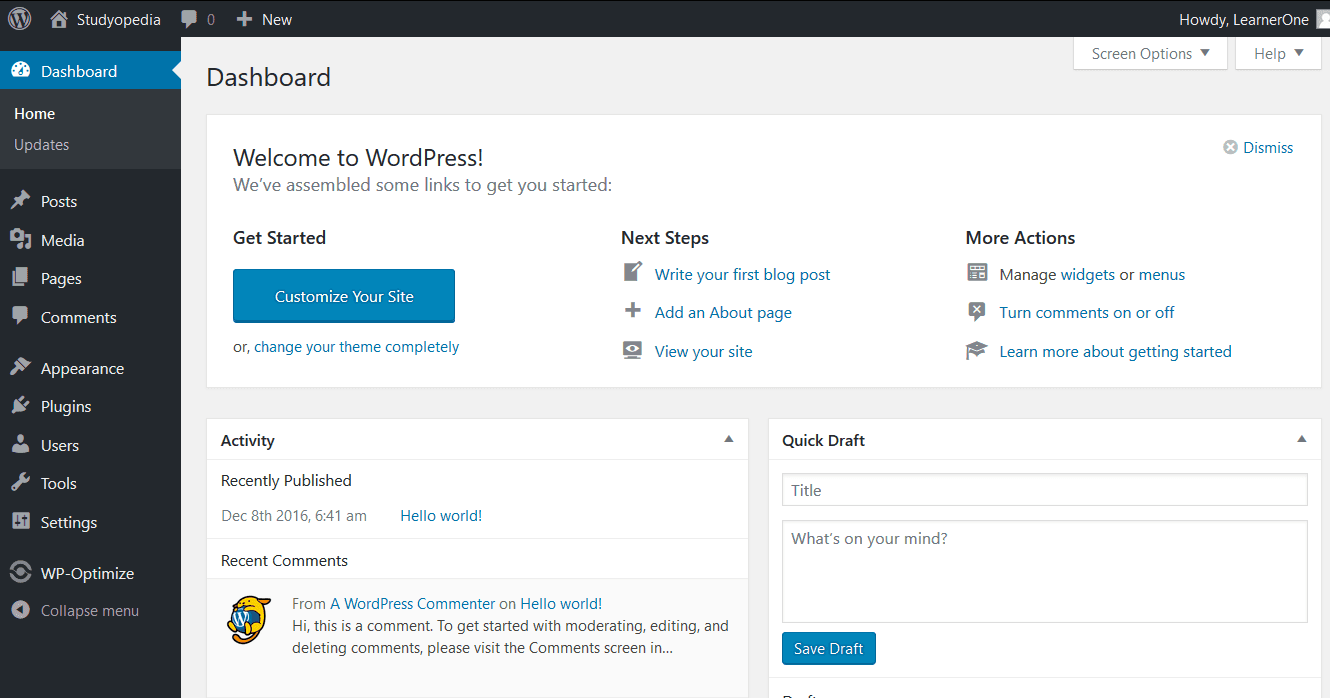The Importance of Maintenance and Support After Website Launch
Discover why ongoing website maintenance and support are essential for keeping your site secure, fast, and performing at its best long after launch.

Launching your website is just the beginning of your online journey. While having a well-designed, fully functional site is essential, it’s equally important to ensure that your website continues to perform optimally. This is where ongoing maintenance and support come into play. Without regular updates, security checks, and performance monitoring, your website could quickly become outdated, vulnerable to cyber threats, or even lose its search engine rankings.
In this post, we’ll explore why ongoing maintenance and support are crucial after your website goes live and how investing in regular care can keep your site running smoothly, secure, and relevant.
Ensuring Website Security
One of the most critical reasons for ongoing maintenance is website security. Cyber threats are constantly evolving, and without regular updates and patches, your site could become an easy target for hackers. Whether it’s an ecommerce site handling sensitive customer data or a simple informational website, no site is immune to potential vulnerabilities.
Why Security Maintenance Matters:
- Protecting Customer Data: For websites that handle personal or financial information, such as ecommerce stores, regular security updates are essential for protecting sensitive customer data.
- Preventing Hacks and Malware: Websites without regular security maintenance are more vulnerable to hacks, malware, and viruses. A hacked website can lead to downtime, loss of data, and damage to your brand’s reputation.
- Staying Compliant with Regulations: Many industries are subject to strict regulations regarding data privacy and security, such as GDPR or PCI DSS for ecommerce sites. Regular maintenance helps ensure your site remains compliant with these laws.
To avoid the risks associated with outdated software and security vulnerabilities, ongoing security checks and updates should be a priority for any business.

Keeping Software, Plugins, and Themes Updated
Most websites rely on various platforms, content management systems (CMS), plugins, and themes to function. These tools require regular updates to ensure compatibility with the latest browsers, devices, and security standards. Failing to update them can lead to broken features, slow performance, or even complete site crashes.
Why Regular Updates Are Essential:
- Improving Functionality: Updates often come with improvements to functionality or new features that enhance the performance of your website. Keeping everything up-to-date ensures your site remains fast, functional, and user-friendly.
- Avoiding Conflicts: Outdated plugins or themes can cause conflicts that result in broken features or bugs. Regular updates help prevent these issues and keep everything running smoothly.
- Maintaining Compatibility: As web technologies evolve, your site needs to stay compatible with new versions of web browsers, mobile devices, and other tools. Regular updates ensure your site remains accessible to all users.
By keeping your website’s software and plugins up-to-date, you’ll minimise the risk of crashes, downtime, and poor user experiences.
Enhancing Website Performance
Website performance directly impacts user experience and search engine rankings. A slow, unresponsive website can drive visitors away, increase bounce rates, and hurt your search engine visibility. Regular maintenance is essential for optimising your website’s performance and ensuring it runs efficiently.
How Maintenance Improves Performance:
- Speed Optimisation: Over time, websites can slow down due to outdated plugins, large image files, or excessive code. Regular performance audits and optimisation can help keep loading times fast.
- Broken Links and Errors: Broken links, 404 errors, or outdated pages can frustrate users and hurt your SEO rankings. Ongoing support ensures these issues are identified and fixed promptly.
- Database Maintenance: For websites that store large amounts of data, such as ecommerce platforms, regular database optimisation can prevent slowdowns and keep the site running smoothly.
By continually optimising your site’s performance, you’ll ensure a better user experience, improve your SEO rankings, and ultimately increase your website’s ability to convert visitors into customers.
Maintaining SEO and Content Relevance
SEO is not a one-time task — it requires ongoing effort to stay competitive in search engine rankings. Regular content updates and SEO optimisations are crucial for maintaining and improving your website’s visibility over time.
Why SEO Maintenance Is Important:
- Adapting to Algorithm Changes: Search engines like Google frequently update their algorithms, which can affect how your website ranks. Ongoing SEO support ensures your site adapts to these changes and remains competitive in search results.
- Fresh Content: Regularly updating your content with new blogs, case studies, or landing pages signals to search engines that your website is active and relevant. This can boost your rankings and drive more traffic.
- Keyword Optimisation: As search trends evolve, the keywords your audience uses may change. Ongoing keyword research and content optimisation help ensure your site remains optimised for the latest search terms.
Regular content updates and SEO tweaks will keep your site relevant and improve its chances of ranking well in search engine results pages (SERPs).

Ensuring Optimal User Experience (UX)
User experience is at the core of every successful website. A website that’s difficult to navigate, slow, or filled with broken links will drive users away. Ongoing maintenance ensures that your website provides a seamless, user-friendly experience that keeps visitors engaged and satisfied.
How Maintenance Supports UX:
- Fixing Bugs: Even well-built websites can experience occasional bugs or glitches. Ongoing maintenance helps identify and fix these issues before they negatively impact user experience.
- Mobile Optimisation: With more users accessing websites from mobile devices, ensuring your website is mobile-friendly is essential. Regular updates help maintain mobile responsiveness and compatibility with new devices.
- Navigation and Design Updates: As your business evolves, your website’s design and navigation may need adjustments to reflect new products, services, or branding. Regular maintenance allows you to make these updates without a complete redesign.
Providing a consistent, positive user experience through regular maintenance will lead to higher engagement, longer visit durations, and more conversions.
Addressing Business Growth and Website Expansion
As your business grows, your website will need to grow with it. Whether you’re adding new products, expanding into new markets, or offering new services, your website needs to be flexible and scalable to accommodate these changes.
Supporting Business Growth Through Maintenance:
- Adding New Features: Ongoing support allows you to add new features, such as ecommerce functionality, booking systems, or customer portals, as your business evolves.
- Scaling for Traffic Increases: As your website traffic grows, you may need to optimise your site for increased loads. Regular maintenance can ensure your server and hosting environment are equipped to handle higher volumes of traffic.
- Updating Content and Design: As your business grows, your website’s content and design may need to be updated to reflect new products, services, or branding. Ongoing maintenance ensures your site remains current and aligned with your business goals.
By having a maintenance plan in place, you’ll be able to easily adapt your website as your business expands, ensuring it continues to serve your growing customer base.
The Role of a Website Maintenance Plan
To ensure your website receives the care and attention it needs, many businesses opt for a website maintenance plan. These plans provide regular updates, security checks, and performance optimisations to keep your site running smoothly.
What’s Included in a Website Maintenance Plan?:
- Regular Software Updates: Ensures your CMS, plugins, and themes are up-to-date and compatible with the latest technology.
- Security Monitoring: Provides ongoing security checks and protection against cyber threats, including malware scans and vulnerability patches.
- Performance Optimisation: Includes regular site speed checks, database optimisation, and improvements to keep your website running quickly and efficiently.
- Backup Services: Regular backups ensure that you have a restore point in case of a technical failure, data loss, or a cyber attack.
- Ongoing Support: Access to a dedicated support team for troubleshooting and resolving issues as they arise.
By investing in a maintenance plan, you’ll have peace of mind knowing that your website is regularly monitored, updated, and protected from potential issues.
Conclusion
Ongoing website maintenance and support are essential for ensuring that your website continues to perform optimally, stays secure, and adapts to the evolving needs of your business. From protecting your site against cyber threats to keeping your software up-to-date, regular maintenance plays a critical role in your website’s long-term success.
By investing in a maintenance plan or scheduling regular updates, you’ll not only keep your website running smoothly but also ensure that it remains a valuable asset that supports your business’s growth and goals.